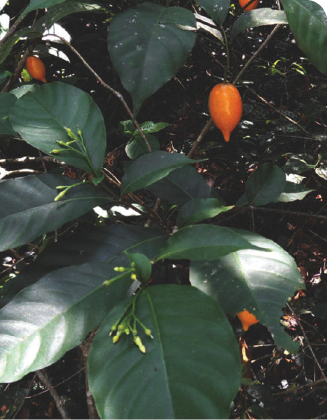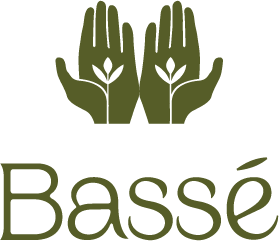Blog

Understanding The Differences of Iboga and Ibogaine: Tradition, Healing, and Science
The relationship between humans and plants has always been deeply spiritual, rooted in recognizing nature’s power to heal and guide. Among the many sacred gifts of the natural world, Iboga holds a particularly esteemed place. Found primarily in Central Africa, the root bark of the Tabernanthe Iboga plant has been used for centuries by the Bwiti people in Gabon, Cameroon, and Congo. This sacred medicine is a cornerstone of their spiritual practices and cultural identity through sacred rituals and ceremony.
Iboga’s derivative, ibogaine, first gained attention in 1962 for its therapeutic potential in addressing addiction and psychological healing. However, while related, Iboga and ibogaine represent different approaches to medicine, healing, and cultural significance. Understanding these distinctions requires respect for the spiritual tradition of the Bwiti people and an appreciation for the modern scientific exploration of Ibogaine as a plant-based medicine for healing addiction, PTSD, and so much more.
What Is Iboga?
Iboga (Tabernanthe iboga) is a potent plant native to Central Africa known to the Bwiti tribe as a masculine plant medicine or “Grandfather / Great Grandfather”. The root bark of this plant is considered a sacred sacrament and is used ceremonially by the Bwiti people for spiritual initiations and rituals. For the Bwiti, Iboga is not just a substance but a bridge to the divine. They believe in the power of this medicine due to the grandfather wisdom and spirit that it carries – offering deep introspection, spiritual connection, and healing.
Ceremonies involving Iboga are intricate and deeply rooted in Bwiti tradition. Participants often undergo profound journeys guided by experienced elders who honor the plant’s spirit and maintain the rituals passed down through generations. These ceremonies are profound ways to connect to ancestors, your past lives, your highest self, and more. These ceremonies are sacred rites of passage, healing, and self-discovery. Here are a few benefits of Iboga:
- Profound Spiritual Insights
- Emotional Healing
- Physical Detoxification
- Heightened Connection to Ancestral Wisdom
- Rebalancing of the Mind, Body, and Spirit
What Is Ibogaine?
While ibogaine is derived from Iboga, its primary purpose differs. Ibogaine is predominantly utilized in clinical and therapeutic contexts, focusing on addiction recovery and physical healing. Although some people may experience spiritual-like insights with ibogaine, its use is generally not rooted in spiritual practices and traditions like Iboga.
Ibogaine is a naturally occurring alkaloid extracted from the Iboga plant. Unlike the ritualistic use of Iboga in its raw form, ibogaine has been isolated and studied for its medicinal properties, particularly in treating opioid addiction. Researchers have found that ibogaine can help reduce withdrawal symptoms and cravings from opioid, cocaine,methamphetamine, and alcohol addiction. This makes it a highly sought-after treatment in addiction recovery when used in a clinical setting.
While it offers a pathway to healing, ibogaine treatments are conducted in medical facilities rather than sacred spaces, emphasizing physiological outcomes over spiritual ones. Safe Ibogaine medical facilities are aware of the potential risks of Ibogaine, especially relating to heart problems. Doctors can monitor one’s heart and manage other side effects through medical care.
5 Benefits of Ibogaine
Ibogaine has gained significant attention for its potential benefits, particularly in the realm of addiction treatment and healing trauma. Some of ibogaine’s advantages include:
- Reduction of Withdrawal Symptoms
- One of ibogaine’s most remarkable effects is its ability to reduce withdrawal symptoms associated with opioid addiction or other kinds of addiction.
- Interrupting Addiction Cycles and Cravings
- Ibogaine works by resetting neural pathways in the brain, offering a “reset” to individuals struggling with addiction. This can help break the compulsive cycle of substance use and reduce the intense cravings that often lead to relapse, providing a window of opportunity for further psychological and behavioral therapy.
- Potential for Trauma and Psychological Healing
- While not as spiritually connected as Iboga, ibogaine still induces introspective experiences for some users, almost like a “waking dream-like state”, helping them confront unresolved emotional trauma that may contribute to their addiction.
- Rapid Onset of Effects
- Compared to traditional rehabilitation programs, ibogaine often provides noticeable benefits after a single session, making it an appealing option for those seeking immediate relief from addiction.
It is important to note, however, that ibogaine treatment must be conducted in a medically supervised environment due to potential risks, including heart complications. As such, its use should be approached with caution and professional oversight.
Key Differences Between Iboga and Ibogaine
- Cultural Context and Usage
- Iboga: Used within Bwiti ceremonies and seen as a masculine plant spirit, Iboga has a deep spiritual and cultural connection and requires careful preparation and guidance.
- Ibogaine: Primarily used in clinical or therapeutic settings to address addiction or trauma that is not specifically linked to spiritual and cultural context.
- Composition
- Iboga: Contains a complex mixture of 22 alkaloids, including ibogaine and other compounds that contribute to its strong and intense effects.
- Ibogaine: A single isolated alkaloid, focusing on its neurochemical interactions to heal trauma and addiction specifically.
- Purpose
- Iboga: Aims to heal the body, mind, and spirit in a deeply spiritual ritual, initiation, and practice that connects a person to their soul and ancestors.
- Ibogaine: Targets specific medical conditions, such as addiction, through its pharmacological properties that affect numerous neurotransmitters simultaneously.
- Experience
- Iboga: It often involves a prolonged and intense visionary journey, guided by a ceremony that can last several hours and days/weeks to ground.
- Ibogaine: Typically induces a shorter, more focused, and monitored experience, with an emphasis on physical detoxification and the need for additional support and integration.
Honoring the Bwiti People and Their Medicine
As ibogaine becomes more prominent in Western medicine, it is important to honor the Bwiti people and their sacred traditions and belief in the spirit of this sacred medicine. The knowledge and practices surrounding Iboga have been cultivated through centuries of spiritual dedication and are ones we must not forget.
For those seeking healing through Iboga or ibogaine, understanding and respecting this medicine’s cultural and spiritual origins is crucial. Engaging with traditional guides, supporting Bwiti communities, learning about their rituals and beliefs, and working with clinics that support these, too, ensures that the sacred nature of Iboga is preserved while still honoring the evolution and medical use of Ibogaine.
Practicing Reciprocity
In honor of sacred medicine and its roots, we can practice reciprocity. It is vital to acknowledge the sustainability challenges Iboga faces, and without mindful action, this sacred plant risks endangerment due to increasing global demand and exploitative practices. Supporting vetted sustainability initiatives, such as Blessings of the Forest, allows us to practice reciprocity and ensure the preservation of Iboga for future generations while uplifting and empowering the indigenous communities who have protected this sacred medicine for centuries.
Honoring the Unique Roles of Iboga and Ibogaine
Iboga and ibogaine each hold a powerful potential for healing, but it is essential to understand that they are not interchangeable. Ibogaine developed through a scientific approach, is primarily utilized in clinical settings for targeted medical treatment, such as addressing addiction. In contrast, Iboga is deeply rooted in the spiritual and ceremonial traditions of the Bwiti people, offering a vastly different experience that requires deep respect and careful preparation.
Recognizing the differences between these two forms can help individuals reflect on their intentions and purpose before engaging with either. For those seeking a traditional, spiritually guided journey, Iboga’s ceremonial use carries significant cultural and spiritual depth, demanding a reverent approach.
Ibogaine as a Tool for Profound Healing
Conversely, ibogaine provides a clinical pathway for those in need of focused treatment under professional supervision. It also offers a possibility for profound healing, particularly in addressing deep-seated trauma and breaking the cycle of addiction, when used responsibly and with proper clinical support.
Both forms of this medicine carry immense power and responsibility. By honoring their distinct roles and respecting their origins, we can uphold the wisdom of the Bwiti people and ensure that Iboga’s cultural and spiritual significance remains preserved.
